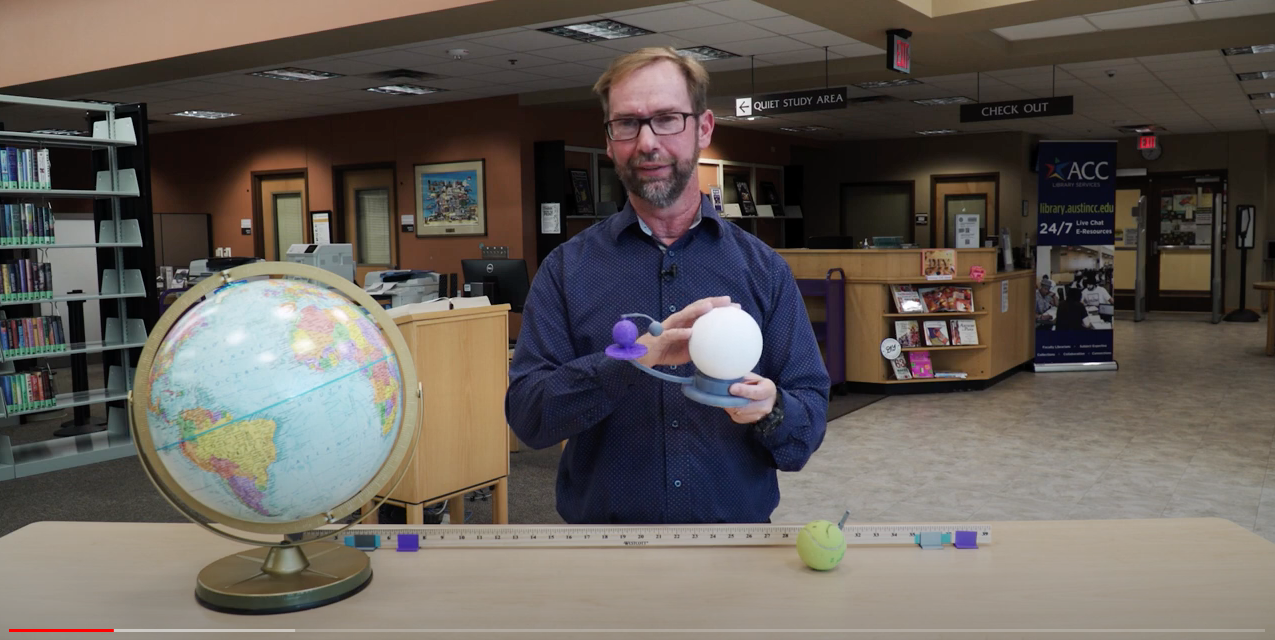Are you ready for a once-in-a-lifetime event? On April 8, 2024, a total solar eclipse will pass directly over Central Texas. Austin Community College District (ACC) hosts a series of opportunities to help you enjoy the once-in-a-lifetime experience.
Get Your ACC-Branded Eclipse Glasses
To safely observe the eclipse, you’ll need special, certified safety glasses. ACC will offer specially branded eclipse glasses to students, employees, and the community at every college campus. Beginning Monday, April 1, students and employees may pick up their ACC-branded eclipse glasses at any Student Life office before the big day. All glasses comply with ISO 12312-2, FDA, and CE regulations.
Watch the Eclipse with an Expert
The college’s Astronomy faculty members have been preparing for this unique event for the past year. On April 8, they’re hosting four unique Total Solar Eclipse watch events at campuses across the district — Round Rock, Cypress Creek, Highland, and South Austin. While you will be able to observe the eclipse with your naked (but eclipse-glasses-protected) eye, we know that sometimes, you just want a closer look. Each campus watch party event will include access to special ACC telescopes. Faculty and experts also will be on hand to talk about the phenomenon and answer questions.
Want to Learn More?
A solar eclipse happens when the moon’s orbit passes in front of the sun, blocking it from view. In most eclipses, the moon doesn’t fully cover the sun as it passes in front of it. But, in a total solar eclipse, the moon blocks the sun completely, turning the sky dark enough to see the stars and planets, and causing a 360-degree sunset. To experience this awe-inspiring event (which lasts less than 5 minutes) one needs to be inside the corridor of totality. You can check the exact time and duration of the eclipse at your location using this interactive map from the National Solar Observatory.
ACC Physics professor Dr. Michael Endl talks about what makes a total solar eclipse such a remarkable celestial event. Watch the special ACC Experts episode below and visit ACC’s Total Eclipse web page for more details about the eclipse events happening at ACC.


What if you are in class when the eclipse takes place? Is it at the discretion of each teacher, professor, to let students see it or not?
Will any other ACC campus have eclipse events? Round Rock may be too far for many students to attend. I have made eclipse projectors in the past that allow those without glasses to safely view the eclipse on a white screen.